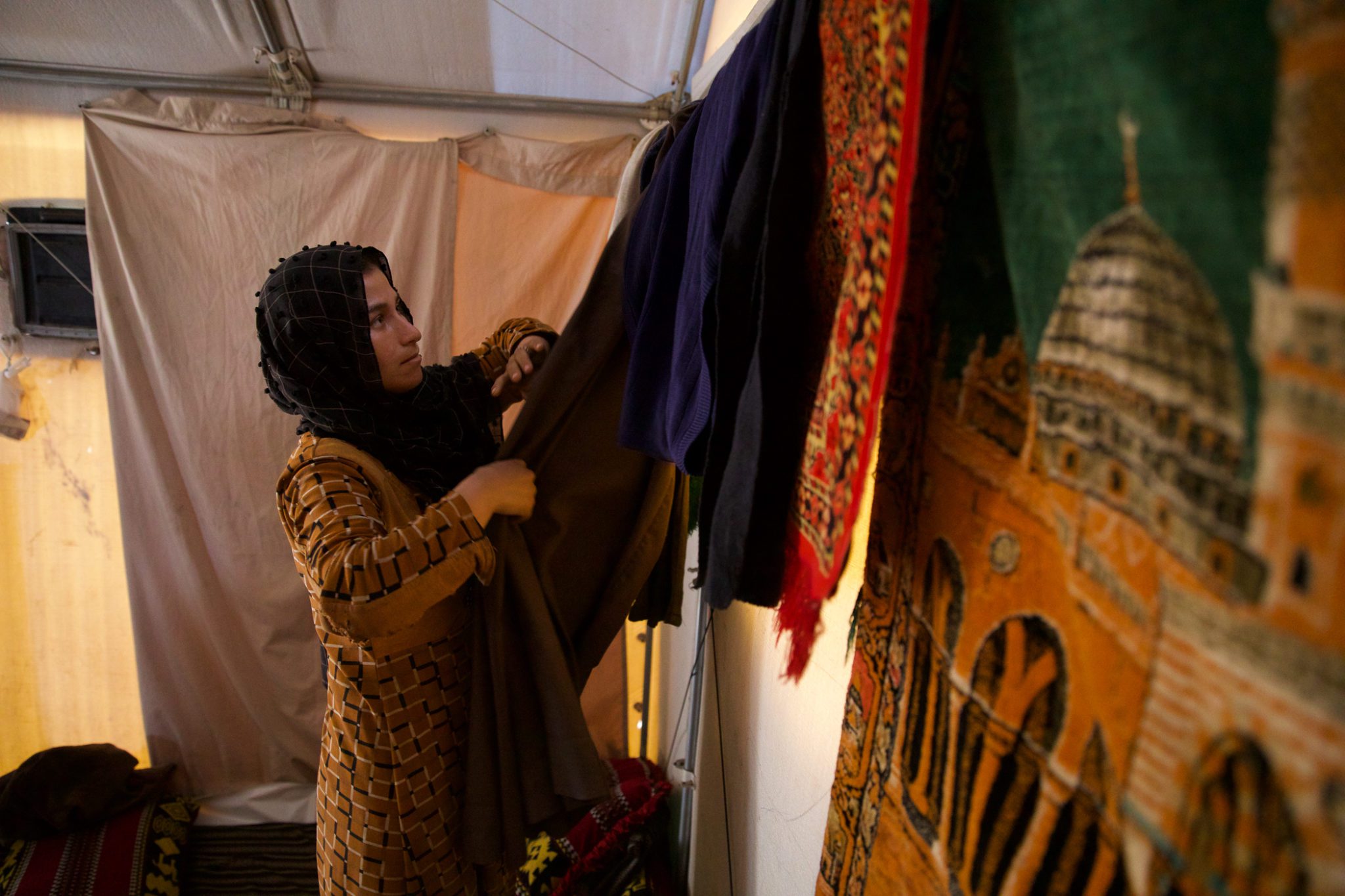“It felt like I was in a boat in the ocean with my family, and we were sinking. I didn’t know whom to save first … I didn’t want to lose any of them.”
Ahmad Ali Watfa

Ahmad comes from Kafranbuda in the countryside of Hama in northwest Syria. He, his wife and their five children have been displaced since 2017.
They now live in one of the camps in Qah near the Syrian-Turkish border. The house they lived in previously in Al-Basouta, near Jandaris, collapsed in the earthquake that struck southern Türkiye and northern Syria on February 6 last year.
“I will never forget the moments when the earthquake hit. We were sleeping when the house started swaying, and the ceiling stones began falling on us.”
The family managed to escape the house before it collapsed but couldn’t bring any belongings.
“This is not the first time I lost my home and memories, but I thank God that no one from my family was harmed.”
Despite a year passing, Watfa’s family still suffers from the psychological effects left by the earthquake.
“My children are still afraid when they go to sleep. They tell me that the earth will shake, crack, and swallow them.”
Ahmad describes the living conditions in the camp where he currently lives as bad due to the scarcity of aid reaching them, especially after the reduction of international relief entering Syria, coinciding with a lack of job opportunities in the area, preventing him from securing his daily bread.
One year on, the crisis is underfunded. Present organisations do what they can with limited resouces.
“When I came to the camp after the earthquake, the organisations working in the region helped us and provided all our needs. But today, we don’t receive any assistance,” Ahmad says. “It has come to the point where I have to go to the landfill to collect some cardboard and nylon bags to light them up and keep warm.”
Northwest Syria is facing instability due to the ongoing war and continued shelling in the region. The area is home to approximately 4.5 million people, with 1.9 million living in internally displaced camps, according to the latest statistics from the United Nations Office for the Coordination of Humanitarian Affairs (OCHA).
Before the earthquake, Ahmad used to collect scrap and nylon and sell them to recycling factories in the area to make ends meet. However, due to the increasing number of workers in the same field, he can no longer earn what he used to.
“Can you imagine someone who doesn’t have 100 Turkish liras (equivalent to $3) being able to bring medicine for his sick daughter?” he asks.
Despite the difficult circumstances, Watfa still looks to the future with optimism and faith that it will be better than the days they are currently living. “I am confident that God will not forget us, and these tough days will pass,” he adds.




